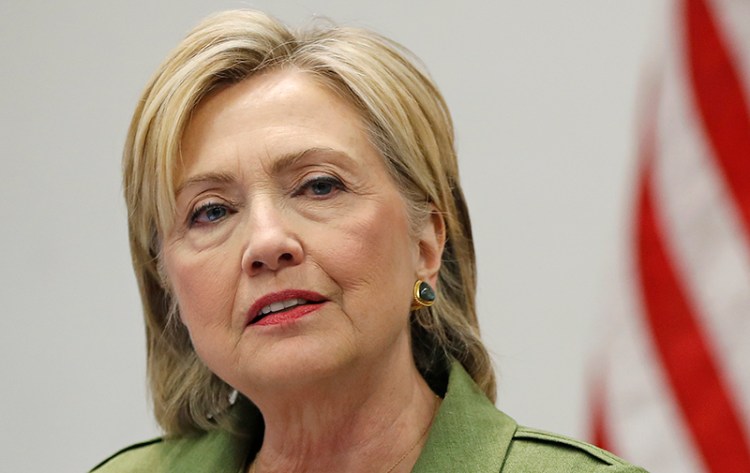The FBI’s year-long investigation of Hillary Clinton’s private email server uncovered 14,900 emails and documents from her time as secretary of state that had not been disclosed by her attorneys, and a federal judge on Monday pressed the State Department to begin releasing emails sooner than mid-October as it planned.
The new Clinton emails and documents are nearly 50 percent more than the roughly 30,000 emails that Clinton’s lawyers deemed work-related and returned to the State Department in December 2014.
Lawyers for the State Department and Judicial Watch, a conservative legal group, are negotiating a plan for the release of the emails in a civil public records lawsuit before U.S. District Judge James Boasberg of Washington.
In a statement issued after a hearing Monday, Judicial Watch president Tom Fitton said the group was pleased that Boasberg rejected the department’s proposal to begin releasing documents weekly on Oct. 14, ordering it instead to prioritize Clinton’s emails and to return to court Sept. 22 with a new plan.
In a statement, State Department spokesman Mark Toner said the agency previously agreed voluntarily to hand over emails sent or received by Clinton in her official capacity as secretary from 2009 to 2013 but that tens of thousands of documents would have to be “carefully appraised at State” to separate official records from personal ones.
Clinton campaign spokesman Brian Fallon said, “As we have always said, Hillary Clinton provided the State Department with all the work-related emails she had in her possession in 2014. We are not sure what additional materials the Justice Department may have located, but if the State Department determines any of them to be work-related, then obviously we support those documents being released publicly as well.”
Monday’s hearing came seven weeks after the Justice Department closed a criminal investigation without charges into the handling of classified material in Clinton’s email setup, which FBI Director James Comey called “extremely careless.”
Also Monday, a Republican lawmaker issued subpoenas to three private companies that helped run or protect Clinton’s email server. Rep. Lamar Smith, R-Texas, who chairs the Committee on Science, Space and Technology, is demanding documents by Sept. 9 after the firms declined earlier this year to produce them voluntarily.
Although the criminal investigation has ended, lawmakers have questions about the structure and security of Clinton’s email system and whether it met federally recommended standards for cybersecurity and record preservation.
The subpoenas target Platte River Networks, which provided information technology services for Clinton’s server; Datto, Inc., which furnished immediate recovery of backup data in the event the primary server failed; and SECNAP Network Security Corp., which carried out threat monitoring of the network connected to Clinton’s server. The firms’ services were retained in 2013.
Send questions/comments to the editors.


